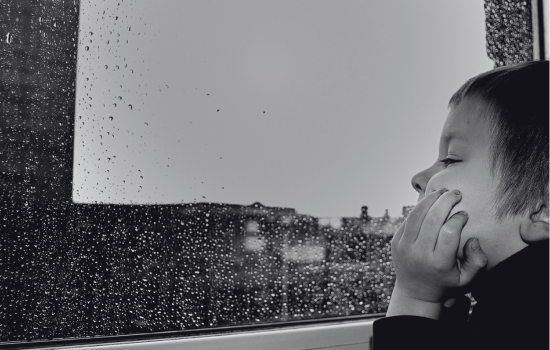When learning Japanese, one common phrase you’ll encounter is “I hope that ~,” which can be expressed using 〜と良いです(ね). This phrase is a versatile and polite way to convey your wishes or hopes for something to happen.
Understanding 〜と良いですね
The phrase 〜と良いです(〜といいです) is used to express a hope or wish that something will occur. It’s similar to saying “I hope that…” in English. The particle と (to) is used to connect the verb or condition you are hoping for, and 良い (いい, “good”) expresses the desire for a favorable outcome.
Typically, 〜と良いです(〜といいです) is used when you are expressing a hope or wish for yourself, while 〜と良いですね(〜といいですね) is used when you are wishing something for someone else. Additionally, when you are hoping for something that affects both you and the other person, such as wishing for good weather during a trip you are both taking, 〜と良いですね(〜といいですね) is often used to seek empathy or shared sentiment.
Adding ね (ne) at the end softens the expression and makes it more conversational, similar to adding “isn’t it?” or “right?” in English.
Grammar Point: How to Construct 〜と良いです(ね)
- Verb Casual Form + と良いです(ね)
Use the casual form of the verb before と良いです(ね) to express hope. Often dictionary-form, negative-form and potential-form are used. - Noun + だと良いです(ね)
Use と良いです(ね) when it’s negative. - いAdjective + と良いです(ね)
- なAdjective (remove な) + だと良いです(ね)
Use と良いです(ね) when it’s negative.
Example Sentences
Here are some examples of how to use 〜と良いです(ね) in different contexts:
Using Verbs
- Expressing Hope for Good Weather
明日は晴れると良いですね。 (あしたははれるといいですね。)
— “I hope it’s sunny tomorrow.”
This sentence expresses a wish for good weather. The verb 晴れる (はれる, “to be sunny”) is used before と良いです(ね) to convey the hope that tomorrow will be sunny.
Using verb in dictionary form. - Wishing Someone Success
試験がうまくいくと良いですね。 (しけんがうまくいくといいですね。)
— “I hope your exam goes well.”
Here, うまくいく (うまくいく, “to go well”) is used to wish someone success in their exam. Adding と良いです(ね) shows that you are rooting for them.
Using verb in dictionary form. - Hoping for a Good Trip
楽しい旅行になると良いですね。 (たのしいりょこうになるといいですね。)
— “I hope you have a good trip.”
The verb なる (なる, “to become”) is used here to express a hope for an enjoyable trip.
Using verb in dictionary form. - Wishing for a Happy Outcome
彼女がプレゼントを喜んでくれると良いです。 (かのじょがぷれぜんとをよろこんでくれるといいです。)
— “I hope she’ll be happy with the gift.”
In this example, 喜ぶ (よろこぶ, “to be happy”) is used to express a desire for someone’s happiness. Omitting ね makes it a bit more neutral or formal.
Using verb in dictionary form. - Hoping for Recovery
早く治ると良いですね。 (はやくなおるといいですね。)
— “I hope you get better soon.”
Using 治る (なおる, “to recover”) before と良いです(ね) allows you to express a hope for someone’s speedy recovery.
Using verb in dictionary form. - Hoping Dreams Come True
夢が叶うと良いですね。 (ゆめがかなうといいですね。)
— “I hope your dreams come true.”
Using verb in dictionary form. - Wishing for a Smooth Drive
高速道路が混んでいないと良いな。 (こうそくどうろがこんでいないといいな。)
— “I hope the highway isn’t crowded.”
Using verb in negative form. - Hoping for Dry Weather
帰ってくるまでに雨に遭わないと良いんだけど。 (かえってくるまでにあめにあわないといいんだけど。)
— “I hope it doesn’t rain before he gets back.”
Using verb in negative form
*The use of (ん)だけど here softens the statement and adds a tone of uncertainty or politeness, indicating that while you hope it doesn’t rain, you are aware that it might. - Hoping to See Cherry Blossoms in Japan
日本で桜が見れると良いね。 (にほんでさくらがみれるといいね。)
— “I hope we can see the cherry blossoms in Japan.”
Using verb in potential form.
Using Nouns
- Wishing for Good Weekend Weather
週末はいい天気だと良いね。 (しゅうまつはいいてんきだといいね。)
— “I hope the weather is nice this weekend.”
Using noun. - Wishing for a Minor Injury
大したケガじゃないと良いんですが。 (たいしたけがじゃないといいんですが。)
— “I hope it’s not a serious injury.”
Using noun in negative form.
*In this case, ですが (ですが) is used to introduce a slight hesitation or concern, making the statement more gentle and polite. - Hoping a Shop Isn’t Closed
お店が休みじゃないと良いです。 (おみせがやすみじゃないといいです。)
— “I hope the shop isn’t closed.”
Using noun in negative form.
Using Adjectives
- Wishing for Good Weather
天気が良いと良いですね。 (てんきがいいといいですね。)
— “I hope the weather is good.”
Using い-adjective. - Hoping for Affordable Prices
料金が高くないと良いです。 (りょうきんがたかくないといいです。)
— “I hope the prices aren’t too high.”
Using い-adjective in negative form. - Wishing for Full Bloom
桜が満開だと良いですね。 (さくらがまんかいだといいですね。)
— “I hope the cherry blossoms are in full bloom.”
Using な-adjective 満開な. - Hoping for a Handsome New Teacher
新しい先生がハンサムだと良いね。 (あたらしいせんせいがはんさむだといいね。)
— “I hope the new teacher is handsome.”
Using な-adjective ハンサムな. - Hoping for an Easy Day at Work
明日の仕事は大変じゃないと良いな。 (あしたのしごとはたいへんじゃないといいな。)
— “I hope tomorrow’s work isn’t too hard.”
Using な-adjective 大変な in negative form.
Choosing the Right Ending for Different Contexts
Depending on the context, you might want to adjust the ending to make your expression more casual or more formal.
- と良いです: This is the most polite form and is suitable for formal settings or when you want to show respect.
- と良いですね: This is slightly more casual and is often used when you are wishing something for someone else or when seeking empathy in a shared situation.
- と良いね: Dropping the です makes the expression more informal, suitable for casual conversations with friends or family.
- と良いな: In a casual setting, 〜と良いな is used when you are expressing a hope or wish for yourself. The な adds a more personal, reflective tone, indicating that the hope is something you’re internally considering or wishing for yourself.
By understanding and adjusting the ending based on the context, you can tailor your expression to fit the situation more naturally, whether you’re speaking formally, informally, or reflecting on a personal wish.
Conclusion
Understanding how to use 〜と良いです(ね) is a valuable tool in expressing your hopes and wishes in Japanese. Whether you’re hoping for good weather, someone’s success, or a happy outcome, this phrase allows you to communicate your desires politely and effectively. Keep practicing with different situations, and soon, you’ll be able to express your hopes with ease!
